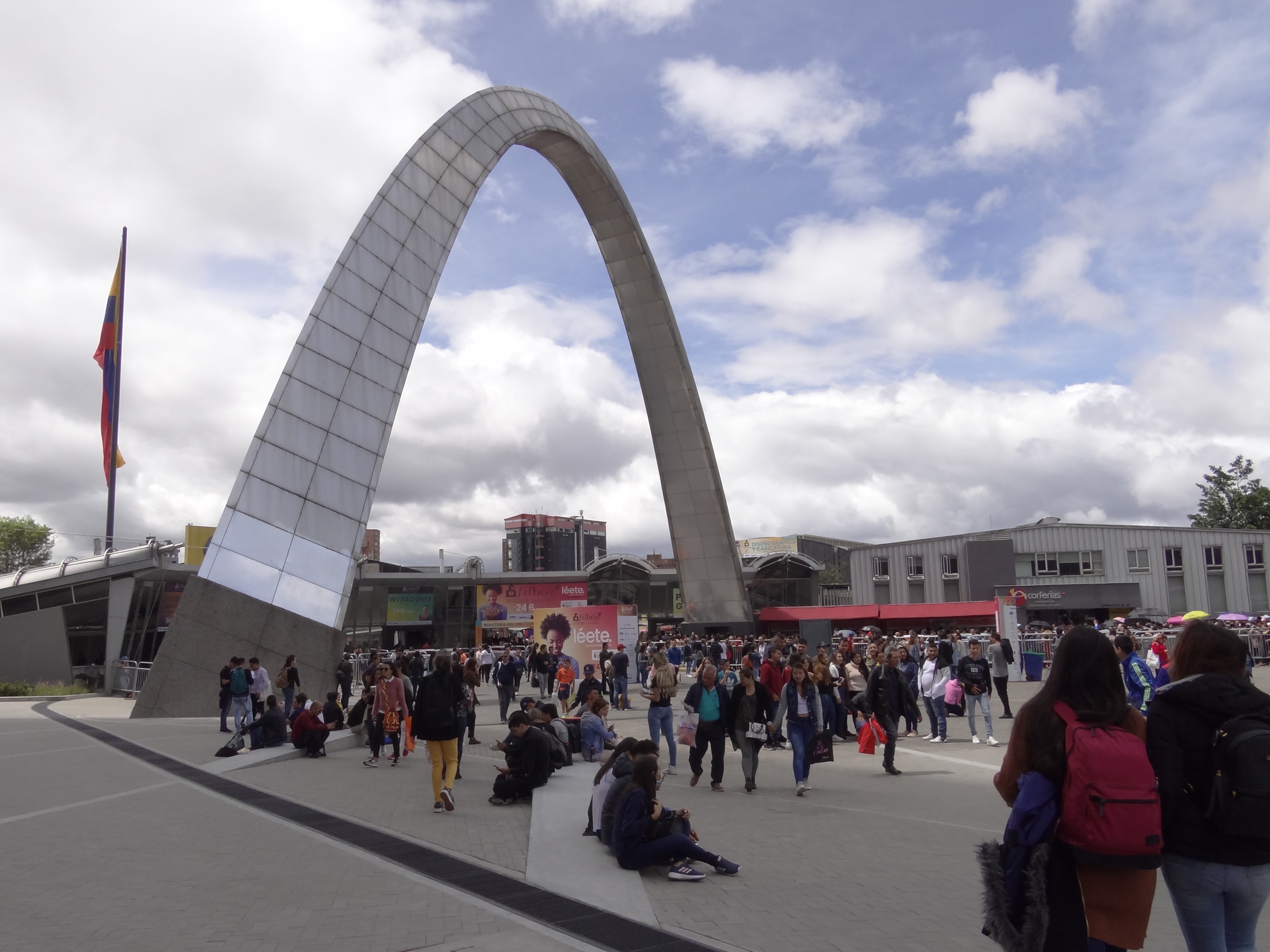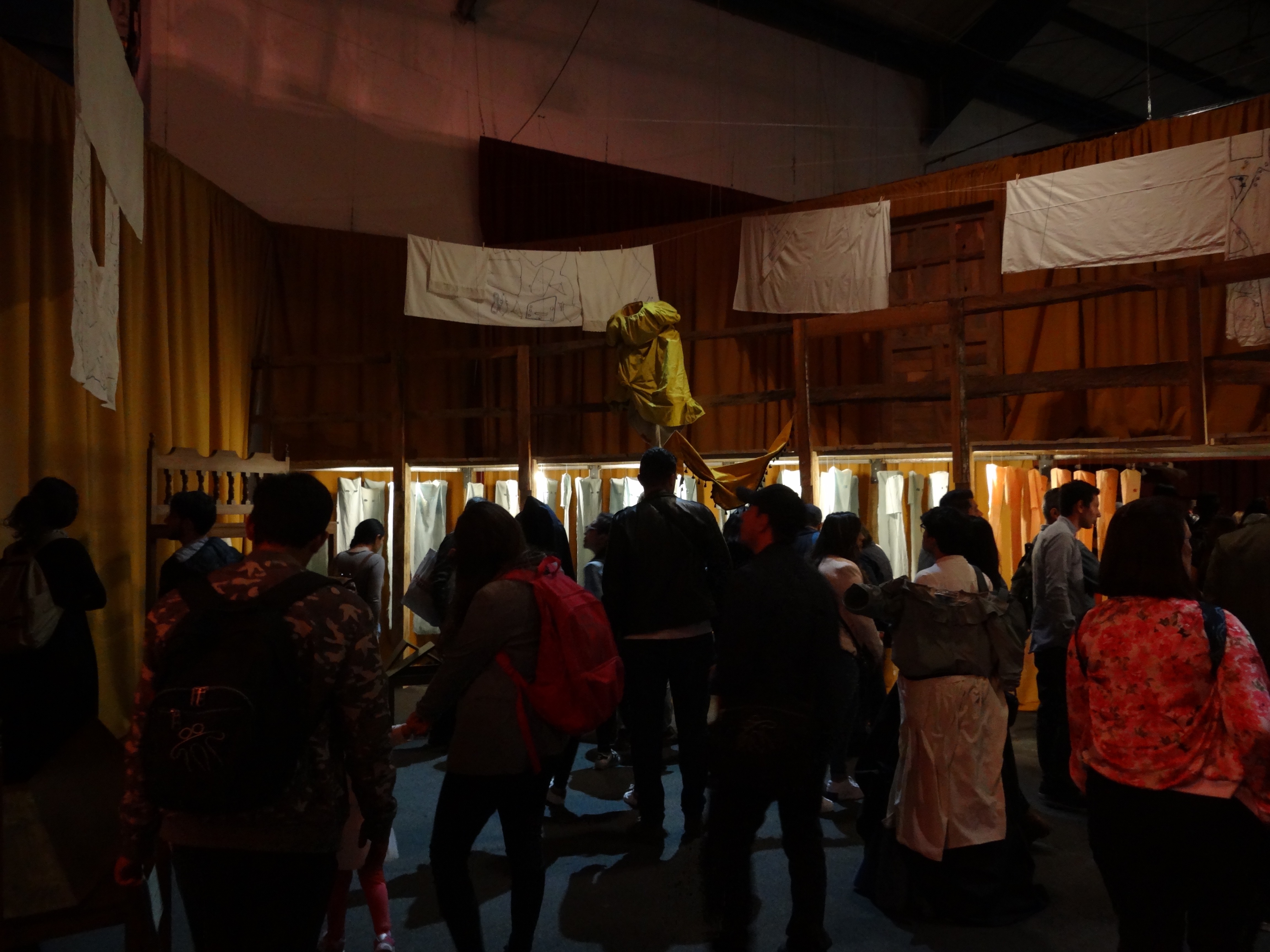
Between poetry and disaster, read yourself: The Bogotá International Book Fair 2019
The thirty-fourth edition of the Bogota International Book Fair with the slogan "Léete. El país invitado eres tú", is a subtle but disturbing portrait of the…
Lines, books, lines, humid heat in the pavilions, books, conferences, books, trinkets, rain. At first glance, this year's Bogotá International Book Fair would seem the same as any other, except for the disappointment that the guest country is Colombia (although the bicentennial of republican life is a major reason for this). However, when looking in detail, there are at least two important questions to ask: What does the cultural program of the fair tell us? And what to think about what is not in it?
In reviewing the agenda of events, the following categories come to the fore: dystopian literature and science fiction, topics related to the armed conflict, and poetry.
Throughout the fair’s program, there are at least fifty events on dystopia, science fiction and the sensation of being in a precarious, fragile moment, or one that is already fallen in disaster. There are forty-six conversations and poetry recitals, and twenty-six conversations that deal with the armed conflict in Colombia. The events of the first group show us how culture is responding to the global sensation that we are in a deep crisis at all levels, one that may have become increasingly evident since 2016: political polarization (the triumph of the “No” in the referendum of the Peace Agreement in Colombia, Brexit, the elections of Trump and Bolsonaro, the Venezuelan crisis, etc.), anti-immigrant governments gaining power throughout the globe, climate change, the fight against ISIS, migratory crises— and the list could go on.
The increase in the production of science fiction narratives and dystopias in this context makes a lot of sense. It is to imagine other realities, to talk about this present whose future is problematic and, particularly in dystopias, to see characters confronting circumstances of great adversity, in which they are at an obvious disadvantage, only to be able to sometimes overcome these challenges and achieve a better life. Perhaps that produces a sense of comfort with respect to the real world: the reader is still in a reality in which things can be saved, in which he has not lost control over everything. And in the literature in which we find a character with his life in tatters, we can at the very least see that sadness and pain can be named, and that we do not have to be trapped in the loneliness of our silences.
The enormous programming of events centered on poetry can also show a will, manifested through culture, to learn how to meet with others, to give new words to the way we name the world and thus change the terms of our relationships. In the words of the Spanish poet Erika Martínez, when asked about the place of women in poetry: "The poet has to put himself in anyone's place. We women, from our subaltern place, have exercised to put ourselves in the place of the other. And we, the poets, are just any one of us, so we help others to find each other".
However, the reaction of culture to the political and social circumstances in which we find ourselves is one thing; another, quite different, is the interpretation that can be made of how the government in power responds to those circumstances through the management of culture. While it is true that programming the events already described is a way of recognizing social tension, they also respond to the dynamics of the market. There is another gesture implicit in the same programming, more subtle but no less powerful: silence.
The government of Ivan Duque, in open opposition to the Peace Accord, has several tools to make their implementation impossible and to continue attacking the efforts of memory building, reconstruction of the social fabric and reconciliation in the country, as violence grows again. Indeed, twenty-six events were dedicated to themes related to literature and the armed conflict, but this is not as significant when compared to the rest of the programming (for example, fifteen events dealt with different sectors of the country’s population with some disability), and, especially, when another couple of elements are taken into account: the total absence of the National Center of Historical Memory at the book fair and how poor the museographic exercise was for the Bicentennial Pavilion of Our Republican Life. The message is clear: talking about the armed conflict in Colombia is inevitable, but the government's interest in making it part of the public agenda is limited.
The absence of the National Center of Historical Memory (CNMH), the institution in charge of clarifying and explaining the facts of the conflict, can be understood by recalling how problematic the appointment of the new director, Ruben Darío Acevedo Carmona, was. Acevedo refuses to accept the existence of an armed conflict in Colombia, as became evident in an interview in February of this year granted to the newspaper “El Colombiano.” The reaction of civil society, academics and, especially, victims' associations was overwhelming, but this did not prevent his election to office.
In spite of the fact that the recognition of the armed conflict seemed to be a minimum indispensable condition to assume the direction of such an institution, Acevedo limited himself to issuing a press release in which he stated that his personal opinion did not in any way interfere with the development of the mission of the CNMH and went straight ahead to work. In this order of ideas, the absence of the CNMH demonstrates an effort to make the institution have a lower profile, for not making known the investigations that are being done, and for favoring the forgetfulness that, like revenge, is the son of silence.
RELATED CONTENT

As if this was not enough, the analysis of the pavilion dedicated to the commemoration of the two hundred years of the republic is equally disturbing. The enormous room of three thousand square meters was divided into seven sections hanging fabrics from the ceiling, four of which are dedicated to the superficial exploration of aspects of the independence feat: Citizenship, Independence, Equality and Freedom.
The rest are the Chichería El Porvenir, the Colombian bookstore, impeccably curated by the Colombian Association for Independent Booksellers and the Colombia 200 Years Forum. Each of the four themes was treated in the same way: a simple scenography was installed (white dresses imitating those worn by 19th century peasants, hung on a clothesline in the citizenship section; a tangle of canes and machetes in the liberty section; a large backdrop painted with belligerent peasants in independence and several crippled chairs with explanations in the seats for the equality section). Next to it a series of posters loaded with text. The four sections of the pavilion are undoubtedly relevant, but the work done on them fell short. Some people stop to read part of the explanations, but the bulk of the audience passes by indifferent, or with a confused look which betrays their lack of understanding. At the most they stop to take a selfie.
This kind of exhibition does not allow us to understand the complexity of the circumstances and tensions that existed in Colombia in 1819, and it does not communicate the transcendence of those events. In short, it does not help the public to feel that history is something that touches them directly, that today has consequences in their lives.
Why not exhibit facsimile objects of the time? Why not use videos or audios to complement the exhibition or actors walking through it? Why, in three thousand square meters, did they refuse to show what impact that year of 1819 had in the rest of the country’s history? Because they are not interested.
Here, in the land of oblivion, we cannot afford to simply let go of the government's efforts to silence history. We cannot afford to let the implementation of the Peace Accord slip from our hands, either with the Special Jurisdiction for Peace, or in culture. For now, thinking of the National Historical Memory Center and the book fair next year, we have no choice but to evoke "el Indio" Pastor Lopez, who loved Colombia so much: we are going to toast to the absent, that next year he may be present. We are going to wish him good luck and may God keep him from death.












LEAVE A COMMENT: